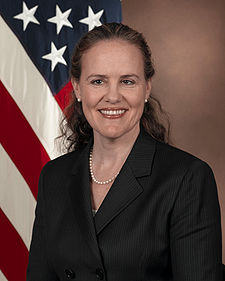The Worst of the Worst
BY GEORGE B.N. AYITTEY | JULY/AUGUST 2010

Millions of lives have been lost, economies have collapsed, and whole states have failed under brutal repression. And what has made it worse is that the world is in denial. The end of the Cold War was also supposed to be the “End of History” — when democracy swept the world and repression went the way of the dinosaurs. Instead, Freedom House reports that only 60 percent of the world's countries are democratic — far more than the 28 percent in 1950, but still not much more than a majority. And many of those aren't real democracies at all, ruled instead by despots in disguise while the world takes their freedom for granted. As for the rest, they're just left to languish. Although all dictators are bad in their own way, there's one insidious aspect of despotism that is most infuriating and galling to me: the disturbing frequency with which many despots, as in Kyrgyzstan, began their careers as erstwhile “freedom fighters” who were supposed to have liberated their people. Back in 2005, Bakiyev rode the crest of the so-called Tulip Revolution to oust the previous dictator. So familiar are Africans with this phenomenon that we have another saying: “We struggle very hard to remove one cockroach from power, and the next rat comes to do the same thing.
1. KIM JONG IL of North Korea (yrs in power: 16) Visa says no info
2. ROBERT MUGABE of Zimbabwe (yrs in power: 30) US embassy
3. THAN SHWE of Burma (yrs in power: 18) US embassy
4. OMAR HASSAN AL-BASHIR of Sudan (yrs in power: 21) US embassy
5. GURBANGULY BERDIMUHAMEDOV of Turkmenistan (yrs in power: 4) US embassy
6. ISAIAS AFWERKI of Eritrea (yrs in power: 17) US embassy
7. ISLAM KARIMOV of Uzbekistan (yrs in power: 20) US embassy
8. MAHMOUD AHMADINEJAD of Iran (yrs in power: 5) Iran c/o embassy of Pakistan + Canadian embassy
9. MELES ZENAWI of Ethiopia (yrs in power: 19) US embassy
10. HU JINTAO of China (yrs in power: 7) US embassy
11. MUAMMAR AL-QADDAFI of Libya (yrs in power: 41) US rep
12. BASHAR AL-ASSAD of Syria (yrs in power: 10) US embassy
13. IDRISS DÉBY of Chad (yrs in power: 20) US embassy
14. TEODORO OBIANG NGUEMA MBASOGO of Equatorial Guinea (yrs in power: 31)
15. HOSNI MUBARAK of Egypt (yrs in power: 29) US embassy
16. YAHYA JAMMEH of Gambia (yrs in power: 16) US embassy
17. HUGO CHÁVEZ of Venezuela (yrs in power: 11) US embassy
18. BLAISE COMPAORÉ of Burkina Faso (yrs in power: 23) US embassy
19. YOWERI MUSEVENI of Uganda (yrs in power: 24) US embassy
20. PAUL KAGAME of Rwanda (yrs in power: 10) US embassy
21. RAÚL CASTRO of Cuba (yrs in power: 2) “Cuba interests section”
22. ALEKSANDR LUKASHENKO of Belarus (yrs in power: 16) US embassy
23. PAUL BIYA of Cameroon (yrs in power: 28) US embassy
Comment: We are uncertain why FP stopped at 23, why they list Hugo Chavez over Blaise Compaore' (who they claim murdered an opponent, while Chavez' gov was the 1st to respond to the Haiti crisis), and what their view is of Saudi Arabia whose known to fund the notorious Pakistani Intelligence Service (ISI) who are connected to terrorist operations, and Saudi Arabia was well-known to be pro-Taliban and they were recently revealed to be funding terrorism in Iraq. Also check out the History Commons timeline associated with the Saudis and Taliban connection.
Non-genius idea for FP: link information sources that backup your list.
UPDATE: Jan 31, 2011 they added this article America's Other Most Embarrassing Allies
Related:
+ Handbook: Democide–Internal Murder by Regimes
+ 2004 Palmer (US) Achieving Universal Democracy by Eliminating All Dictators within the Decade
+ Review: Breaking the Real Axis of Evil–How to Oust the World’s Last Dictators by 2025
+ Postcard from Hell: The Failed States Index 2010 (Foreign Policy)

 This report
This report



